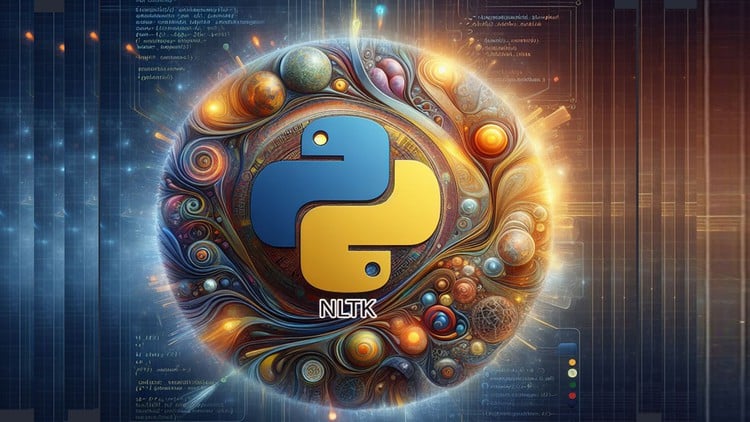What
You’ll Learn
You’ll Learn
- 1. Introduction to NLP and NLTK
- 2. NLTK Library and Python Integration
- 3. Core NLP Techniques and Applications
- 5. Advanced NLTK Concepts
Requirements
- Basic Programming Knowledge
- Understanding of NLP Concepts
- Interest in Language Processing
Description
Master Python NLP: Success with Natural Language Toolkit (NLTK)
Welcome to your ultimate guide to mastering Python’s Natural Language Toolkit (NLTK)! Whether you’re eager to dive into the fascinating world of Natural Language Processing (NLP) or strengthen your skills with NLTK, this course is designed with you in mind. From foundational concepts to advanced applications, this course caters to learners at all levels, providing valuable insights into the seamless integration of NLTK with Python.
With thoughtfully crafted quizzes and assessments, you’ll gain practical knowledge of NLTK’s powerful capabilities. From tokenization to advanced NLP techniques like Named Entity Recognition (NER) and sentiment analysis, this course equips you to apply NLTK to real-world challenges. Get ready to unlock the potential of NLTK and take your Python NLP expertise to the next level.
Would you like to learn Natural Language Processing Technology?
It is an advanced technology used in a variety of systems like ChatGP which is an advanced-level bot based on NLP technology with Python. I will recommend you to learn the NLTK library to understand NLP basics.
Course Outline
Simple Category: Building a Foundation in NLP with NLTK
-
Introduction to NLP and NLTK
-
Overview and significance of NLP
-
What is NLTK, and why is it vital for NLP?
-
Key goals and applications of NLTK in language processing
-
Intermediate Category: Strengthening Core Skills
-
Understanding NLTK in Python
-
Key functionalities of NLTK for text processing
-
Tokenization and its importance in NLP tasks
-
Integration of NLTK modules with Python workflows
-
-
Core NLP Techniques with NLTK
-
Stemming and its real-world applications
-
Part-of-Speech (POS) tagging for better linguistic analysis
-
Practical uses of NLP and NLTK across industries
-
Complex Category: Advanced Applications and Real-World Use Cases
-
Practical Implementations with NLTK
-
Sentence tokenization using NLTK: Hands-on guide
-
Exploring sentiment analysis with NLTK tools
-
Steps to implement Named Entity Recognition (NER)
-
-
Advanced NLTK Concepts
-
Syntactic parsing and its importance in NLP
-
Leveraging WordNet for semantic analysis with NLTK
-
Proposal for NLTK-based text summarization projects
-
Why Python NLP is Essential
Natural Language Processing is revolutionizing how machines interact with human language. By combining NLP with Python libraries like NLTK, Spacy, and others, developers can create cutting-edge applications for sentiment analysis, text summarization, machine translation, and more.
Python NLP projects are a cornerstone for innovation, enabling efficient processing of text data and providing meaningful insights that drive better decision-making. With this course, you’ll acquire the skills to design impactful NLP solutions and revolutionize how text-based data is understood.
NLP vs. NLTK: Understanding the Difference
-
NLP (Natural Language Processing): A broad AI field focused on enabling machines to understand, interpret, and generate human language.
-
NLTK (Natural Language Toolkit): A Python library specifically designed for NLP tasks, providing tools, algorithms, and datasets to work with human language.
While NLP is a vast discipline, NLTK serves as a powerful toolkit within this field, making it accessible and practical for developers and researchers using Python.
Who this course is for:
- Students Studying NLP: Those pursuing studies or courses related to Natural Language Processing (NLP)
- seeking to reinforce their knowledge and excel in exams.
- Professionals in AI and Data Science: Individuals working or interested in Artificial Intelligence (AI)
- Data Science
- or Machine Learning fields aiming to enhance their understanding of NLTK for practical applications.
- “Language Processing Enthusiasts: Anyone passionate about language analysis and processing
- aiming to grasp NLTKs intricacies through quiz-based learning for exam preparation or self-improvement.”
- Python Programmers: Programmers proficient in Python seeking to specialize in NLP using NLTK for various applications and exam readiness.







